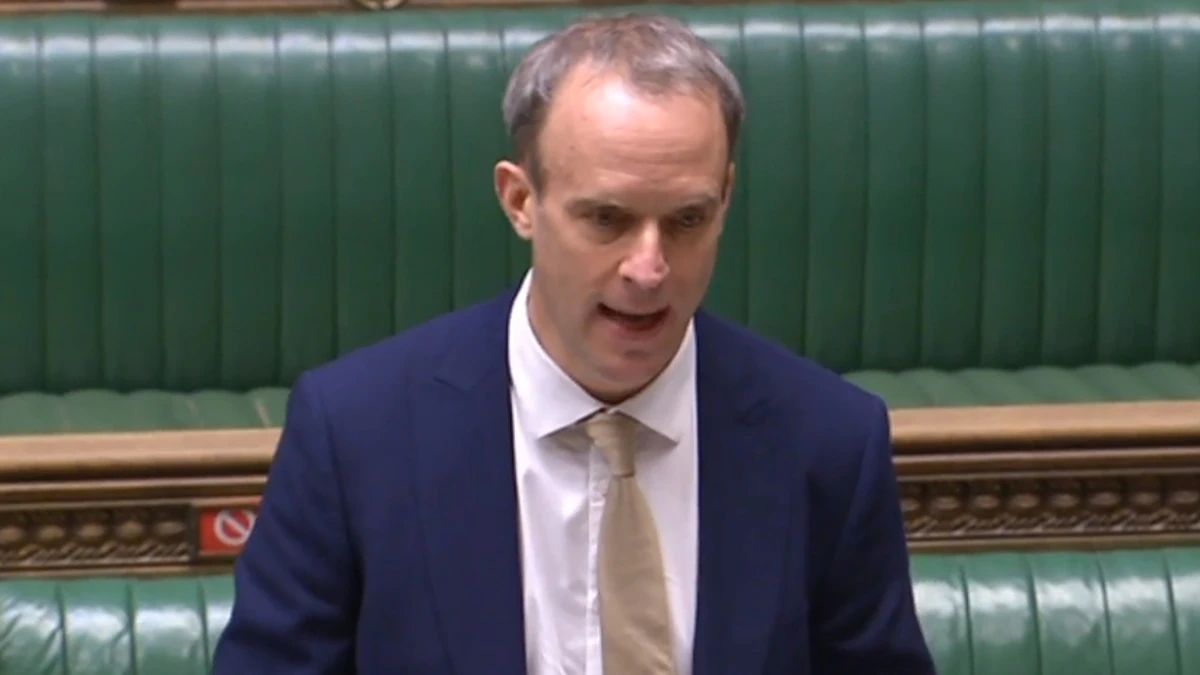
Britain and the United States “firmly oppose Russia’s campaign to destabilize Ukraine” and call on Russia to de-escalate the situation, British Foreign Secretary Dominic Raab has said.
U.S. Secretary of State Antony Blinken “& I agreed Russia must immediately de-escalate the situation & live up to the international commitments that it signed up to at @OSCE,” the Organization for Security and Cooperation in Europe. Raab said on Twitter.
Major movements of Russian armed forces toward or near Ukraine’s borders and into Russian-occupied Crimea have been captured in photographs, video, and other data, fueling concerns that Moscow may be preparing to send forces into eastern Ukraine.
The Kremlin has rejected Western calls to pull back its troops, denying they are a threat while adding that military movements within Russia are a sovereign, internal issue.
The statement by Raab comes a day after Ukrainian President Volodymyr Zelenskiy briefed Turkish President Recep Tayyip Erdogan on the situation.
After their talks in Istanbul, Erdogan called recent developments “worrying” and said he hoped the conflict would be resolved peacefully through dialogue and in line with Ukraine’s territorial integrity.
“We believe that the current crisis can be solved with peaceful and diplomatic means on the basis of the integrity of Ukraine and international law,” Erdogan said.
During their meeting, the presidents also discussed expanding defense cooperation between their countries. Zelenskiy said the stepped-up cooperation would apply especially to weaponry and the construction of fighter jets.
Zelenskiy, who visited Ukrainians troops in the Donbas region on April 8, said Kyiv and Ankara shared the same view on threats in the Black Sea region and the response to those threats.
Washington has called Moscow’s military buildup “destabilizing,” and the White House has expressed concern about the recent troop movements.
U.S. Secretary of State Blinken consulted the German and French foreign ministers on April 9 about the need for Russia to cease its military buildup on the occupied Crimean Peninsula and near Ukraine’s eastern borders.
Russia annexed Crimea in March 2014, sending in troops and staging a referendum denounced as illegitimate by at least 100 countries.
Since then, overwhelming evidence suggests Russia has continued to lend diplomatic and military aid to armed separatists fighting in the Donbas region.
The conflict has killed more than 13,000 people and displaced more than 1 million since April 2014.